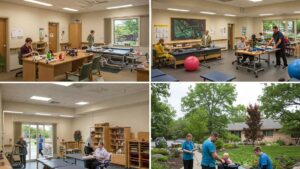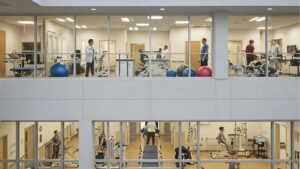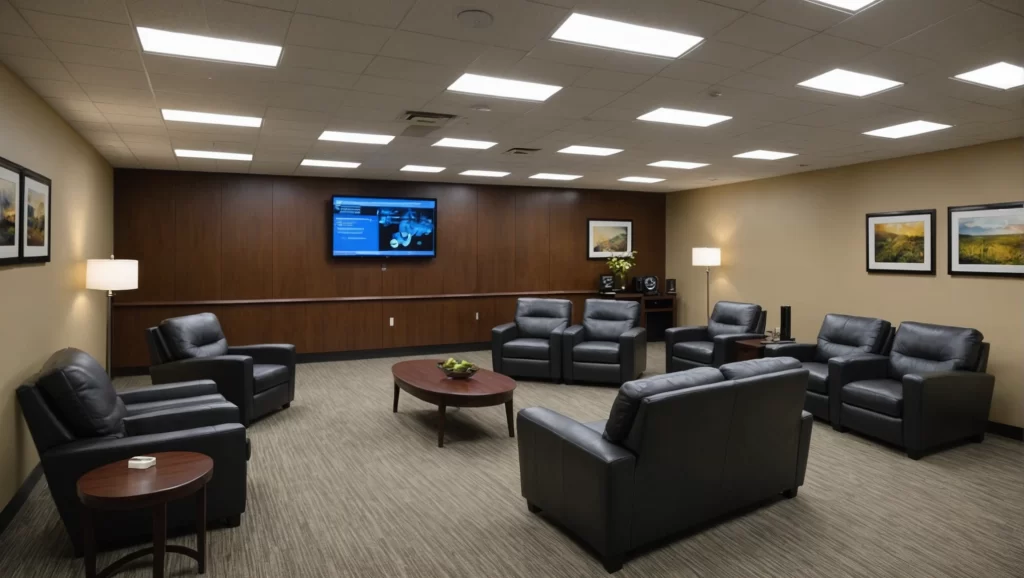Your Guide to Quality Addiction Treatment in Central Ohio
When searching for drug rehabs in Columbus Ohio, you’re taking the first courageous step toward recovery. At Ridgeline Recovery, we understand how overwhelming it can be to navigate the various treatment options available. This comprehensive guide will walk you through everything you need to know about recovery center, helping you make an informed decision about your care or that of a loved one.
The phrase “rehabilitation center” encompasses a wide range of treatment options, from medical detox facilities to long-term residential programs. Understanding these differences is crucial when selecting a program that matches your specific needs, whether you’re struggling with alcohol, prescription drugs, or illicit substances. We’ll explore the key factors that separate quality recovery center from less effective options, ensuring you can identify programs that offer genuine, evidence-based care.

Understanding Different Types of Rehab Programs
Drug rehabs in Columbus Ohio generally fall into several categories, each designed for specific stages of recovery. Recognizing these differences will help you find the appropriate level of care for your situation.
Medical Detoxification Programs
Before entering traditional rehab, many individuals require medical detox to safely withdraw from substances. Our guide to detox inpatient near me explains this critical first phase in detail. Rehabilitation center that offer detox provide 24/7 medical supervision to manage withdrawal symptoms and prevent complications.
Inpatient Residential Treatment
These recovery center provide intensive, round-the-clock care for typically 30-90 days. Patients live at the facility while receiving comprehensive therapy, medical care, and support. This option works well for those with severe addictions or unstable home environments.
Partial Hospitalization Programs (PHP)
A step down from residential care, PHPs offer structured treatment during the day while allowing patients to return home at night. Many rehabilitation center provide this option for those needing substantial support but with stable living situations.
Intensive Outpatient Programs (IOP)
These flexible programs allow individuals to maintain work or school commitments while attending treatment several days per week. Quality recovery center design IOPs to provide substantial support without residential requirements.
Sober Living Homes
While not formal treatment programs, sober living homes often partner with drug rehabs in Columbus Ohio to provide transitional housing after completing primary treatment. These environments offer structure and peer support during early recovery.
What to Look for in Quality Drug Rehabs
Not all rehabilitation center offer the same level of care. When evaluating programs, consider these essential factors:
Accreditation and Licensing
Reputable recovery center maintain accreditation from organizations like CARF or The Joint Commission. These certifications ensure the facility meets rigorous standards for patient care and safety.
Evidence-Based Therapies
The best drug rehabs in Columbus Ohio utilize proven treatment modalities such as Cognitive Behavioral Therapy (CBT), Dialectical Behavior Therapy (DBT), and Motivational Interviewing. These approaches have substantial research supporting their effectiveness for addiction treatment.
Medical and Clinical Staff Credentials
Quality programs employ licensed physicians, nurses, and therapists specializing in addiction medicine. When researching recovery center, verify that clinical staff have appropriate credentials and experience.
Individualized Treatment Plans
Effective rehabilitation center recognize that addiction manifests differently in each person. They conduct comprehensive assessments and create customized treatment plans rather than offering one-size-fits-all programs.
Aftercare Planning
The best recovery center prioritize long-term recovery through robust Aftercare Programs. This includes connecting patients with support groups, outpatient therapy, and other resources post-treatment.
Specialized Treatment Options Available
Many drug rehabs in Columbus Ohio offer specialized programs tailored to specific populations or substances:
Gender-Specific Treatment
Some individuals recover better in single-gender environments. Certain recovery center cater exclusively to men or women, addressing gender-specific issues in addiction and recovery.
Dual Diagnosis Treatment
For those with co-occurring mental health disorders, dual diagnosis programs treat both conditions simultaneously. This integrated approach is essential for lasting recovery.
Medication-Assisted Treatment (MAT)
Some drug rehabs in Columbus Ohio incorporate FDA-approved medications like buprenorphine or naltrexone to support recovery from opioid or alcohol addiction when combined with counseling.
Holistic Therapies
Many programs now complement traditional therapies with yoga, meditation, art therapy, and acupuncture. These approaches can enhance conventional treatment methods.

The Treatment Process at Quality Rehabs
Understanding what happens during rehab can ease anxieties about entering treatment. While programs vary, most quality drug rehabs in Columbus Ohio follow a similar structure:
Comprehensive Assessment
The process begins with detailed evaluations of physical health, substance use history, mental health status, and social factors. This information guides the treatment plan.
Medical Stabilization
For those needing Detox From Alcohol Near Me or other substances, this phase manages withdrawal symptoms under medical supervision.
Primary Treatment
The core rehab phase involves individual therapy, group sessions, skill-building workshops, and often family therapy. Patients learn to identify triggers, develop coping strategies, and repair damaged relationships.
Relapse Prevention Planning
As treatment progresses, drug rehabs in Columbus Ohio help patients develop concrete plans for maintaining sobriety after discharge. This includes identifying support systems and high-risk situations.
Aftercare Transition
Quality programs don’t end at discharge—they connect patients with ongoing support through alumni programs, outpatient care, and community resources.
Payment Options and Insurance Coverage
The cost of rehabilitation center varies widely depending on program type and amenities. Many quality treatment centers accept private insurance, Medicare, or Medicaid. Some key considerations:
Insurance Verification
Most recovery center offer free insurance verification services. Our team at Ridgeline Recovery can help you understand your coverage options.
Financing and Payment Plans
Some facilities provide sliding scale fees or payment arrangements for those without insurance coverage.
State-Funded Programs
Ohio offers publicly-funded treatment options for qualifying residents with limited financial resources.
Overcoming Common Barriers to Treatment
Many individuals hesitate to enter drug rehabs in Columbus Ohio due to various concerns:
Fear of Withdrawal
Medical detox programs make withdrawal safer and more comfortable than attempting it alone. The temporary discomfort leads to lasting freedom from addiction.
Work and Family Obligations
Quality recovery center can help communicate with employers about medical leave for treatment. Many find that short-term absence for rehab prevents long-term consequences of continued addiction.
Stigma and Shame
Professional treatment centers provide judgment-free environments where patients can focus on healing. Addiction is a medical condition, not a moral failing.
Cost Concerns
With insurance coverage and various payment options, treatment is more accessible than many realize. The cost of rehab pales in comparison to the financial consequences of ongoing addiction.

Trivia: The History of Addiction Treatment in Ohio
The first drug rehabs in Columbus Ohio emerged in the mid-20th century as society began recognizing addiction as a treatable condition rather than a moral weakness. Ohio played a pioneering role in addiction medicine, with some of the earliest methadone clinics opening here in the 1970s. Today, Columbus boasts one of the most comprehensive addiction treatment networks in the Midwest, blending decades of experience with cutting-edge therapies.
Frequently Asked Questions
How long does rehab typically last?
Program lengths at recovery center vary from 30-day programs to 90-day or longer stays. Research shows better outcomes with longer treatment durations, but even short-term programs can provide significant benefits.
Can I visit my loved one in rehab?
Most rehabilitation center allow scheduled visitation after an initial adjustment period. Family involvement is often encouraged as part of the treatment process.
What if I relapse after treatment?
Relapse doesn’t mean failure. Quality Recovery Center view it as an opportunity to reassess and strengthen the recovery plan. Many offer readmission options or can recommend appropriate next steps.
How do I know if I need rehab?
If substance use causes problems in your life but you struggle to quit or cut back, professional help may be beneficial. Our team at Ridgeline Recovery can help assess whether rehab is appropriate for your situation.
Taking the First Step Toward Recovery
If you’re ready to explore recovery center, contact Ridgeline Recovery today. Our compassionate team can help you navigate treatment options, verify insurance benefits, and find the right program for your needs. Remember—recovery is possible, and it starts with reaching out for help. Your journey to a healthier, substance-free life begins with this courageous first step.



